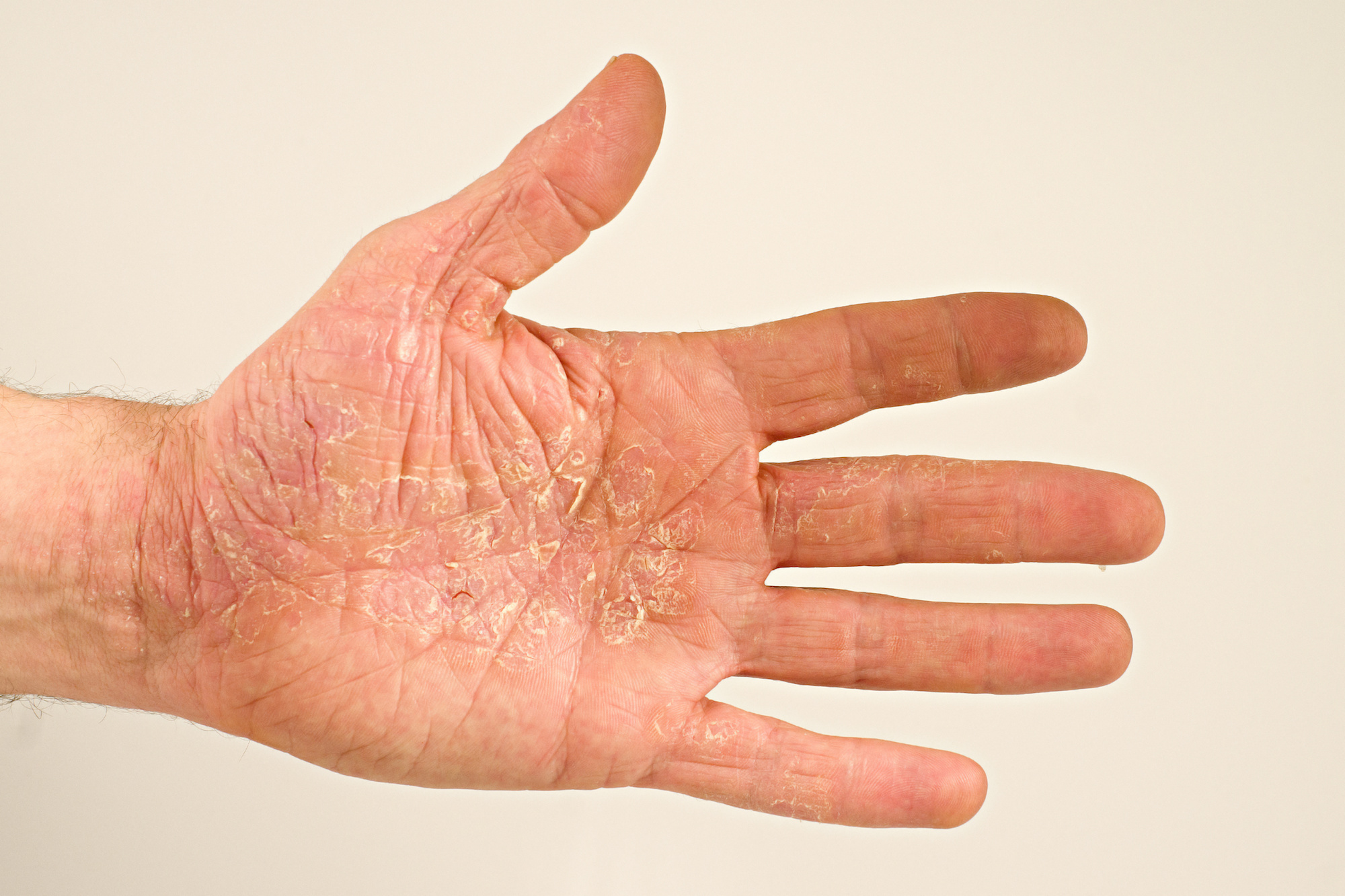 Hand eczema, sometimes referred to as hand dermatitis or dishpan hands, affects approximately 10 percent of the population. The condition is most common among those who are in frequent contact with chemicals or irritants, such as janitors, mechanics, hairdressers, and health care workers.
Hand eczema, sometimes referred to as hand dermatitis or dishpan hands, affects approximately 10 percent of the population. The condition is most common among those who are in frequent contact with chemicals or irritants, such as janitors, mechanics, hairdressers, and health care workers.
Symptoms of Hand Eczema
Eczema can cause the hands to become red, dry, and itchy. “Although the condition is not contagious, it can be itchy and painful, make it difficult to perform daily activities, not to mention affect a person’s self-esteem,” says Dr. Miriam Hanson, a board-certified Dermatologist at Sanova Dermatology.
Management Strategies for Hand Eczema
“The key to controlling your hand eczema is to identify the substances that are triggering your symptoms,” explains Dr. Hanson. “A patch test on the skin can identify chemical that you are allergic to and cause eczema to flare, so you can be in a better position to avoid them.” A few simple changes at home and to your daily routine can also limit the possibility of an eczema flair.
1. Use Care When Washing Your Hands Only lukewarm water should be used when washing your hands. Use only fragrance-free cleansers, and avoid antibacterial soaps or alcohol-based hand sanitizers. After blotting your hands dry, apply a high-quality ointment or cream moisturizer with a high oil content. Try to place the moisturizer by every sink in your home so that you remember to moisturize every time you wash your hands.
2. Wear Gloves Cotton gloves can protect your hands from potential irritants when you do chores around the house. Always wear cotton-lined vinyl gloves when washing dishes, washing your hair, or anything else that involves submerging your hands in water. It is also a good idea to wear non-latex gloves when handling foods like tomatoes or peppers that can be irritating to the skin.
3. Avoid Rings Irritants can become trapped underneath and in the crevices of rings. “If you must wear rings, be sure to remove them when washing and drying your hands,” Dr. Hanson recommends. You should also clean your jewelry often to remove any irritants.
4. Be Prepared Always be sure to take your preferred cleanser and moisturizer with you everywhere that you may go. If possible, keep some at work, in your purse or car so that you can avoid having to use the harsh soaps often found in public restrooms.
5. Continue to Treat Even if your symptoms improve, be sure to maintain your skin care regimen in order to prevent a relapse.
Contact Us
If your symptoms are severe or persist, be sure to contact us for an evaluation. Treatments, including topical corticosteroids, antibiotics, and immune-suppressing medications, are available to help alleviate the discomfort of hand eczema.
